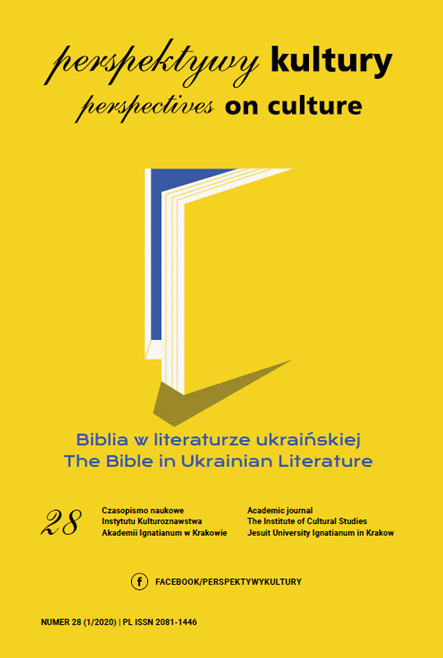Rola planowania budżetu w poprawianiu wydajności polityki gospodarczej w Kazachstanie
Abstrakt
W systemie budżetowym Republiki Kazachstanu, który koncentruje się na uzyskiwaniu korzystnych wyników, szczególne miejsce zajmują programy państwowe. Program państwowy to obszerny dokument określający główne kierunki polityki państwa w zakresie jej wdrażania, co jest bezpośrednio związane ze strategią rozwoju państwa jako całości i z koncepcją rozwoju poszczególnych branż przemysłowych.
W Republice Kazachstanu program państwowy to dokument planowania strategicznego, zawierający zestaw planowanych czynności związanych z zadaniami, terminami, środkami, osobami odpowiedzialnymi za wdrażanie i z instrumentami polityki publicznej, które zapewniają – w ramach realizacji głównych funkcji państwowych – osiągnięcie priorytetów i celów polityki państwowej w zakresie rozwoju socjoekonomicznego i bezpieczeństwa narodowego. Innymi słowy program państwowy jest instrumentem państwowej regulacji gospodarki, który umożliwia osiągnięcie założonych celów poprzez użycie dostępnych zasobów.
Programy państwowe są dokumentami natury międzystrefowej, międzysektorowej i międzyoddziałowej, które definiują cele i oczekiwane rezultaty odnośnie do priorytetów i kierunków strategicznych rozwoju państwa i są opracowywane przez okres minimum 5 lat w celu wdrażania wyższej rangi dokumentów Państwowego Systemu Planowania.
Bibliografia
Decree of the government of the Republic of Kazakhstan, dated April 23, 2010, No. 341, “On recalling from the Parliament of the Republic of Kazakhstan draft laws of the Republic of Kazakhstan ‘On the Accounts Committee for monitoring the implementation of the national budget’ and ‘On amendments and additions to some legislative acts of the Republic of Kazakhstan on the Accounts Committee for monitoring the implementation of the national budget’”. https://online.zakon.kz
Decree of the government of the Republic of Kazakhstan, dated August 28, 2009, No. 1282, “On the draft law of the Republic of Kazakhstan ‘On the Accounts Committee for monitoring the implementation of the national budget’”. https://online.zakon.kz
Decree of the government of the Republic of Kazakhstan, dated December 31, 2013, No. 1446, “On the draft law of the Republic of Kazakhstan ‘On state audit and financial control’”. https://online.zakon.kz
General standards of state audit and financial control, approved by decree of the President of the Republic of Kazakhstan, dated January 11, 2016, No. 167. (2016). https://online.zakon.kz
Methodology for assessing the effectiveness of government bodies in the “Achievement of goals” block: Joint order of the Minister of National Economy of the Republic of Kazakhstan, dated January 16, 2019, No. 7, and the Minister of Finance of the Republic of Kazakhstan, dated January 16, 2019, No. 22. (2019). https://online.zakon.kz
Methodology for assessing the effectiveness of government bodies in the “Interaction of a government body with citizens” block: Joint order of the Chairman of the Agency on Civil Service and Anti-Corruption of the Republic of Kazakhstan, dated February 3, 2017, No. 29, and the Minister of Information and Communications of the Republic of Kazakhstan, dated February 6, 2017, No. 45. (2017). https://online.zakon.kz
Methodology for assessing the effectiveness of government bodies under the block “Organizational development of a government body”: Joint order of the Minister of Information and Communications of the Republic of Kazakhstan, dated February 1, 2019, No. 43, and the Chairman of the Agency on Civil Ser-vice and Anti-Corruption of the Republic of Kazakhstan, dated February 1, 2019, No. 24. (2019). https://online.zakon.kz
Moldashev, A.T. (2017). Internal state audit. Memlekettik audit – State audit, 4(37).
Mukhamedieva, A. (2012). USAID Regional Audit Advisor Macroeconomic Project. Bundesrechnungshof: Overview Report.
Muratbekova, Z.A. (2015). State audit as an integral part of an effective state. Science yesterday, today, tomorrow: Sat. Art. by mater. XXIV Int. Scientific-Practical Conf., 5(21). Novosibirsk: SibAK.
Nazarbayev, N. (2013). Improving the welfare of citizens of the Republic of Kazakhstan is the main goal of state policy [A message from the president to the nation]. Astana: Accord.
Ogorodnikov, A.P. (2018). The formation of internal financial control and internal financial audit in the system of executive authorities. Historical and economic research, 2018. https://cyberleninka.ru/article/n/stanovlenie-vnutrennego-finansovogo-kontrolya-i-vnutrennego-finansovogo-audita-v-sisteme-ispolnitelnyh-organov-vlasti
Omirbaev, S.M. (2007). The budget system of the Republic of Kazakhstan: A textbook for high schools. Astana.
Omirbaev, S.M., Intykbaeva, S.Z., Adambekova, A.A., & Parmanova, R.S. (2012). State budget: A textbook. Almaty.
Regulation on the Committee of Internal State Audit of the Ministry of Finance of the Republic of Kazakhstan. (n.d.). http://www.minfin.gov.kz
The main provisions of the Report of the Accounts Committee on the implementation of the national budget for 2017. (2011). http://www.esep.kz/r3/expert/ posleduyushchaya-otsenka/2011.html
Copyright (c) 2020 Akademia Ignatianum w Krakowie

Utwór dostępny jest na licencji Creative Commons Uznanie autorstwa – Bez utworów zależnych 4.0 Międzynarodowe.
Autor, zgłaszając swój artykuł, wyraża zgodę na korzystanie przez Wydawnictwo Uniwersystet Ignatianum z utworu na następujących polach eksploatacji:
- utrwalania utworu w formie papierowej, a także na nośniku cyfrowym lub magnetycznym;
- zwielokrotnienia utworu dowolną techniką, bez ograniczenia ilości wydań i liczby egzemplarzy;
- rozpowszechniania utworu i jego zwielokrotnionych egzemplarzy na jakimkolwiek nośniku, w tym wprowadzenia do obrotu, sprzedaży, użyczenia, najmu;
- wprowadzenia utworu do pamięci komputera;
- rozpowszechniania utworu w sieciach informatycznych, w tym w sieci Internet;
- publicznego wykonania, wystawienia, wyświetlenia, odtworzenia oraz nadawania i reemitowania, a także publicznego udostępniania utworu w taki sposób, aby każdy mógł mieć do niego dostęp w miejscu i czasie przez siebie wybranym.
Wydawca zobowiązuje się szanować osobiste prawa autorskie do utworu.





